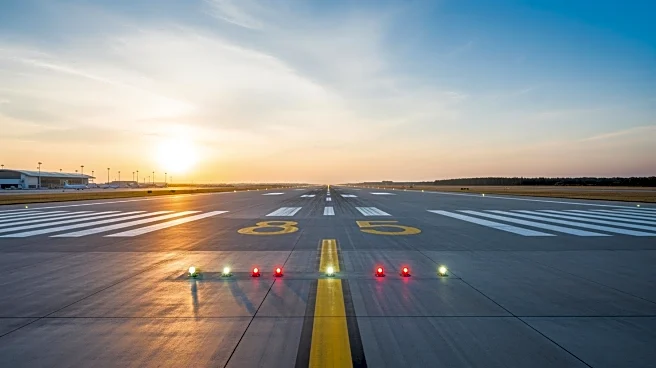What's Happening?
Navi Mumbai International Airport (NMI) is scheduled to commence commercial flight operations on December 25, marking a significant development in India's aviation infrastructure. The airport, which cost
$2 billion to build, is expected to alleviate the capacity pressure at the congested Chhatrapati Shivaji Maharaj International Airport (BOM) in Mumbai. Initially, NMI will handle 23 scheduled daily departures, with plans to increase to 34 daily departures by February 2026. The airport will operate for 12 hours daily during its initial phase, expanding to 24-hour operations in February 2026. Adani Airports Holdings, which manages BOM, will oversee NMI, operating the two airports in synergy as a twin airport system. NMI opens with a single runway and one terminal, with plans to expand to four runways and multiple terminals over time.
Why It's Important?
The opening of Navi Mumbai International Airport is a crucial development for India's aviation sector, as it addresses the growing demand for air travel and eases congestion at existing airports. This expansion is likely to have a ripple effect on the U.S. aviation market, as increased capacity in India could lead to more international flights and improved connectivity. The airport's development also highlights the importance of infrastructure investment in supporting economic growth and enhancing trade and logistics ecosystems. Stakeholders, including airlines, passengers, and businesses, stand to benefit from improved services and increased capacity, which can lead to more competitive pricing and better travel experiences.










